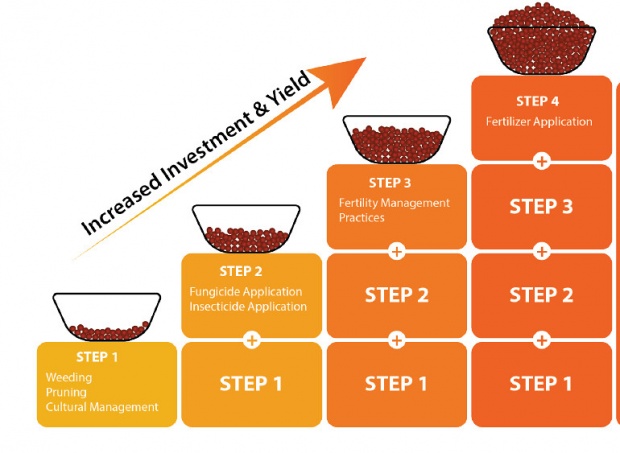Coastal erosion, pollutants, rising sea levels, toxic algae, and the future of coastal residents’ livelihood are not new issues. According to the United Nations Environment Program, recent studies find that 34% of the world’s coasts are at high risk of degradation from coastal development and another 17% are at medium risk.
But thanks to the determination of some resolute individuals, organizations, and companies around the world, smart and sustainable solutions are being designed to help curb climate change and restore our precious coastlines and resources.
Toxic algal bloom from river water diversions is a hot topic. Toxic algae can be caused by several factors but particularly human-created sources including polluted stormwater, agriculture, and wastewater runoff. When this toxic algae accumulates, it produces a noxious surface foam or scum fatal to fish, other marine life, birds, and humans. Aside from the introduction of hydrogen peroxide treatments, several resolutions have been formed to help curb these issues.
In 2019, University of Utah discovered a less-expensive, faster, and less energy-draining way to transform algae into biofuel via a specially designed jet mixer. LG Sonic engages solar-powered ultrasound technology through its MPC-Buoy to control algae growth. And Ryan Hunt, researcher and structural engineer at Aecom, and Mike Van Drunen, co-founder of the Mississippi-based company Algix, teamed up to develop a commercially viable performance foam out of transformed green water. Bloom Foam, an environmentally friendly product, has been incorporated by a range of footwear companies including Adidas, Aldo, Dr. Scholl’s, and Merrell in addition to surf equipment such as pads used by Slater Designs.
Although additional research needs to be conducted, many coastal regions’ oyster farmers might benefit from seaweed aquaculture. A 2017 study was piloted off Alabama’s coast offering mixed results, but the Advanced Research Projects Agency-Energy (ARPA-E) estimates that the U.S. is capable of producing at least 500 million dry metric tons of seaweed annually.
SeaGrown, based in North Yorkshire, England, formed a successful collaboration in 2018 producing seaweed products for the bioplastic and biotextile industries as well as for food and bath products. The company has also secured funding to trial scallop and oyster cultivation within a seaweed farm off the coast of Scarborough, which could eliminate the need for dredging, something that significantly impacts the ecosystem and marine environment.
**BREAKING NEWS!**
A new and innovative trial farming oysters and scallops in Scarborough without the need for dredging! Supported by @SeafoodFund & @YorksWildlife! Proud to involved with this exciting and important project! #seafood #innovation pic.twitter.com/FoYlE1GqBn— SeaGrown (@SeaGrown) January 27, 2020
Sediment diversion also helps in building surge protection. Marsh and wetland restoration are essential. Along the low-lying coast of Java, Indonesia, many villagers in Timbulsloko faced with disastrous erosion concerns constructed natural brushwood structures of nets and bamboo to slow down waves from the Java Sea and in turn collect sediment to help restore the mangroves. Wetlands International, a global not-for-profit organization that helped fund the project, compensates the villagers by offering coastal management field training and loans for local sustainable projects, such as building boardwalks and making organic fertilizers, which will be written off as long as the barriers are maintained.
The company BESE, based in the Netherlands, has created a line of responsible coastal restoration products – mesh bags, ropes, anchors, breakwaters, and more – that are biodegradable and made from waste streams.
The Ocean Cleanup, an organization founded in 2013 by then 18-year-old Dutch engineer, conservationist, and entrepreneur Boyan Slat, has already been tackling the earth’s polluted oceans. Now in order to remove plastics and other materials from the earth’s rivers, they are employing their latest invention, the solar-powered Interceptor.
Another entrepreneur successful in helping to clean up the earth’s oceans is surfer, industrial designer, and CEO Pete Ceglinski. Via the Seabin Project, the company, in line with the United Nation’s 17 Sustainable Development Goals, has captured a total, to date, of 608,635 kilos of litter and distributed nearly 900 Seabins around the world.
Along with these incredible innovations, additional projects have also been tested including seawalls in Sydney, Australia and Seattle, Washington as well as BIOBLOCKs and ECOncrete structures. There is still tons of work to be done, but when we all work together, like those of these determined individuals, organizations, and companies, there is hope for present and future generations.
The ultimate renewable energy is human ingenuity.
— Former Director General of UNESCO Irina Bokova
Editor’s Note: The opinions expressed here by Impakter.com columnists are their own, not those of Impakter.com — In the Featured Photo: Somali men look out across Mogadishu’s fishing harbour in the early morning as fishermen land their catch and transport their fish to the market in the Xamar Weyne district of the Somali capital, 16 March, 2013 — Featured Photo Credit: AMISOM Public Information











